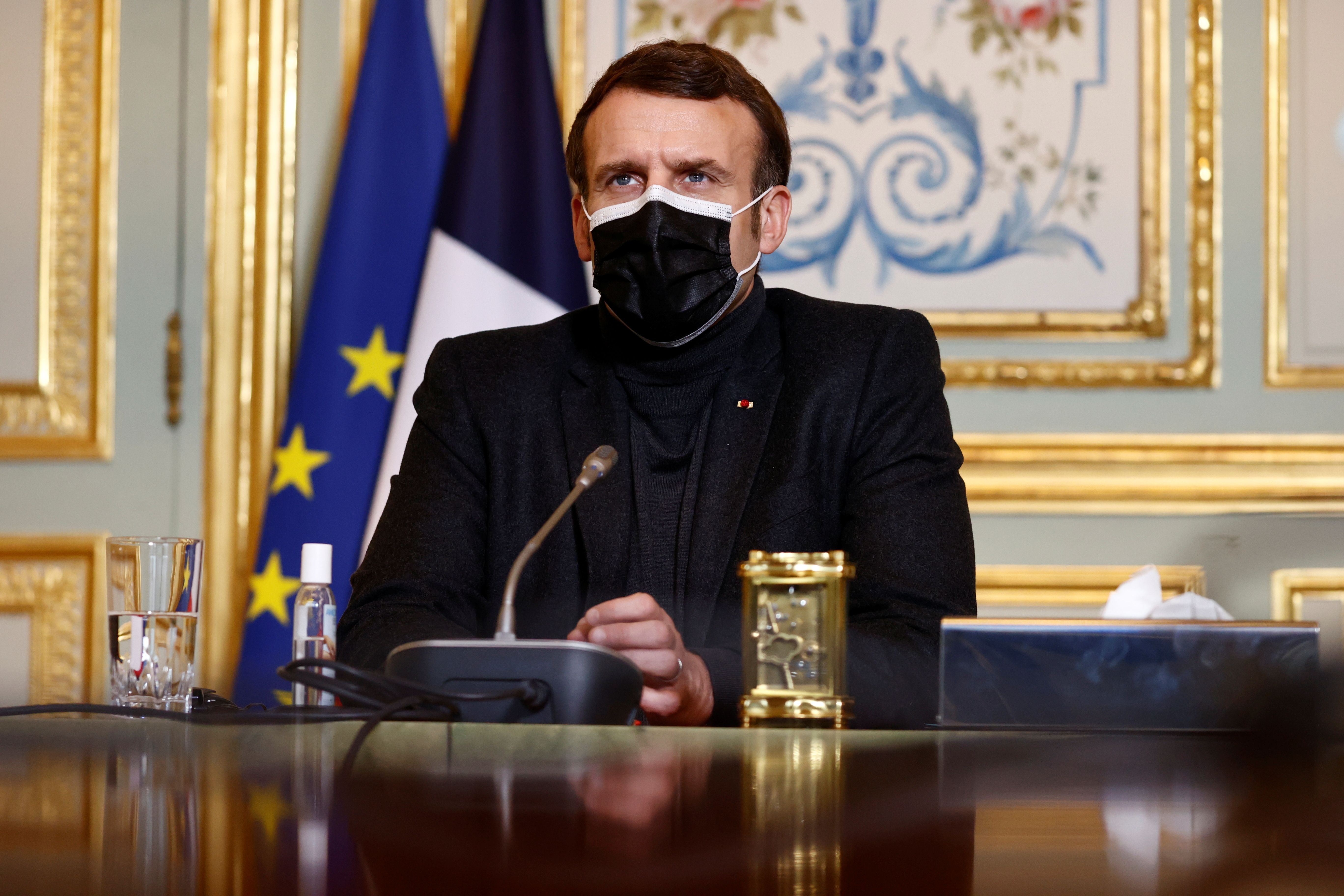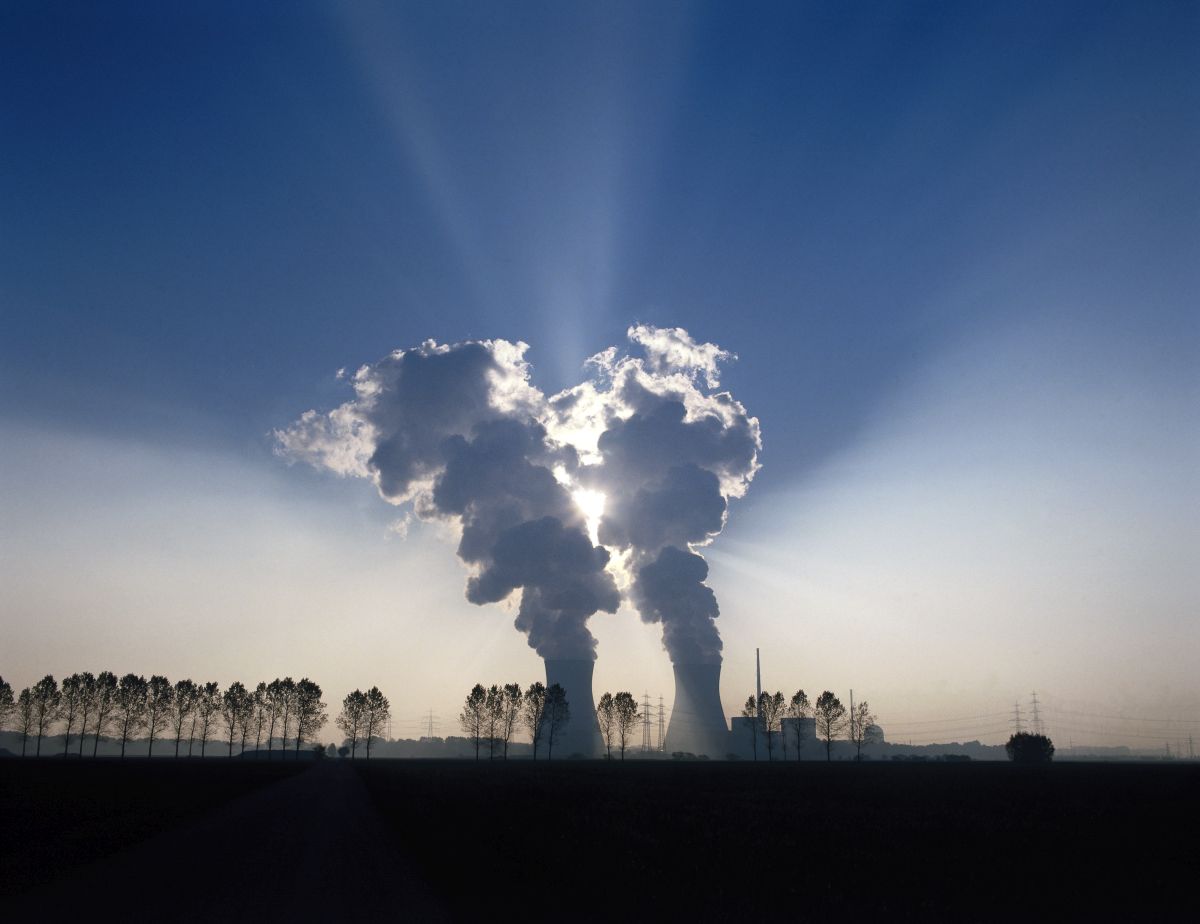The Energy Crisis in France
The global energy crisis has highlighted the weakness in the French energy sector. The nuclear branch, which was supposed to ensure the state’s independence, is struggling with technological problems, the state-owned EDF group is heavily indebted, and production from renewables remains below expectations. The initial government reaction has been aimed at preventing an uncontrolled increase in fuel and energy prices. Now, doubts have been raised about the French president’s ambitious plan for the structural recovery of the energy sector, presented on 10 February, over its financial and technical feasibility.
_sm.jpg) Fot. POOL/Reuters/Forum
Fot. POOL/Reuters/Forum
The rapid rise in oil and natural gas prices in the last year, caused by various stimuli, including increased demand during the economic recovery from the pandemic and higher tensions with Russia, has been keenly felt in France. The price of a litre of gasoline between January 2021 and January 2022 increased from €1.39 to €1.70, while the effects of the 5-12% monthly increases in gas prices since mid-2021 were mitigated only by the government’s intervention. The increase in hydrocarbon prices was reflected in a leap in market electricity prices, which rose from €50/MWh in early 2021 to €380/MWh in December 2021. The price rises combined with nuclear reactor failures and the poor financial condition of the EDF group, responsible for supplying energy, have undermined in the eyes of the public their belief in the country’s energy independence.
Weaknesses in the French Energy Sector
The political conflict over the de-monopolisation of the energy sector blocked the restructuring of the EDF group, in which the state controls 84% of the shares and which from 1946 had a monopoly on electricity production and supply in France. The competition stimulation mechanisms (ARENH) introduced as late as 2010 under pressure from the EU, obligated EDF to resell, at a fixed price (€42/MWh), 25%-33% of the generated energy to its competitors. The result was an outflow of customers from EDF and the development of the commercial supplier market in France. In the period, EDF’s debt soared, reaching €42 billion in 2021. The company is now facing the need for huge infrastructure investments—of about €50 billion over 10 years.
Meanwhile, 10 out of the 56 nuclear reactors faced an emergency shutdown at the turn of 2021/2022 due to corrosion issues, and along with planned reactor shutdowns it affected up to 20% of France’s electricity production. This forced suppliers to temporarily import electricity from Germany, a country often criticised in France as having ineffective energy policy. At the beginning of February, EDF lowered its forecast of electricity production from nuclear sources, which provide about 70% of the electricity in France, from 300-330 TWh to 295-315 TWh. Some experts emphasise that the recent technical problems with the reactors are not caused by age (corrosion is typical of the newest reactors, built in the 1990s), but result from the decline in competency of EDF staff and subsidiaries.
Pessimism about the future of nuclear energy is also fuelled by flaws in the technical (reactor welds) and design (pressure vessel) aspects of the European Pressure Reactor (EPR). The EPR was to replace the decommissioned reactors, but all current investments of this type have been delayed and their costs are rising. In the fall of 2021, Macron added to the uncertainty surrounding the future of the EPR when he announced that the state would focus on investments in Small Modular Reactors (SMRs), which are only in the research phase in France.
Although 2021 brought a lot of investments in renewable energy sources (RES), the potential of which reached 61.5 GW (up by 4.4 GW), France still has not managed to reach the goal of 27% of energy from renewable sources set by the EU for 2020. The obstacle has been a political conflict between the government and the right-wing opposition, which seeks the continued dominance of nuclear energy and is against the use of wind turbines, citing falling land prices, noise, and negative impacts on the landscape. In addition, RES productivity in 2021 was below expectations (125 TWh, i.e., the same as in 2020) as a result of unfavourable weather, low energy storage capacity, and optimisation of production on the weather conditions.
Government’s Actions and Omissions
As the rise in the prices of raw materials and energy could threaten support for Macron, the government lowered the excise tax (from €22.50 to €0.50 per MWh). A 4% limit on gas and electricity price increases was also introduced. Charging the costs of these actions to EDF, by increasing to 20 TWh the amount of energy that the company must resell to its competitors at €46/MWh, aroused protests from the company’s management and trade unions. EDF already produces too little electricity at present, so it has to buy it on the market instead. The management board estimates the losses at €8 billion, while the EDF share price has declined by 20%.
The energy crisis has also influenced the evolution of the French position on the Nord Stream 2 (NS2) gas pipeline. In spring 2021, Macron admitted that although France had doubts about the strategic consequences of its construction, it is taking into account the growing demand for gas in the EU due to the energy transition (the French company Engie participated in the project). The president’s words were confirmed in February 2022 when Economy Minister Bruno Le Maire warned the EU against further increases in commodity and energy prices caused by sanctions against NS2 in the event of an escalation of Russian aggression against Ukraine.
However, France’s priority remains to privilege the nuclear energy in EU regulations. In addition to seeking to include it in the “green taxonomy” (a system for classifying activities for sustainable development), the government has also proposed changing the rules for shaping the price of energy. According to Le Maire, making these prices dependent on the costs of electricity production at the last power plant necessary to ensure supplies links electricity prices to gas prices, which in France is not justified because of the dominance of nuclear power.
Macron delayed the decision to build and renovate reactors for a long time. Officially, the president’s staff explained they were expecting the country’s energy network manager's (RTE) report, which was delivered in autumn 2021, to present variants of the development of the French energy sector. It was also a form of pressure on EDF, as the president waited for the launch of the first French EPR reactor in Flamanville (its construction was to cost €3 billion and be completed in 2012, but currently the estimated costs are €12.7 billion, and the commissioning date is the end of 2023). The negotiations with the European Commission (EC) regarding state aid for EDF also played a role. Finally, Macron had to take into account the ambiguous attitude of his voters towards nuclear energy. For example, he confirmed the goal of reducing the share of nuclear energy in the French mix to 50%, but shifted the cut-off date by 10 years (from 2025 to 2035).
Only in February 2022 Macron took the initiative to order new reactors and, at the same time, to massively develop RES. The president announced the construction by 2050 of six EPR2 reactors with a total capacity of 25 GW (minimum cost is €46 billion) with the possibility of ordering eight more. The investments in RES, including 50 offshore wind farms, and a moratorium on closing reactors after 50 years of operation, even if not required by safety standards, are to prevent an energy deficit. The goal is to increase annual energy production based on nuclear and renewable sources from 450 TWh per year to 750 TWh.
The pre-election atmosphere has not allowed the president to explain how he wants to solve, in consultation with the EC, the debt problems of EDF, its monopoly position, or the conditions of state aid for the group. Macron only announced negotiations on ARENH reform aimed at better securing EDF’s interests. Another way to improve the group’s situation is recapitalisation by the state in the amount of €2 billion. French diplomacy also supports EDF’s efforts to find foreign orders for the construction of EPR2 reactors (including in Poland).
Conclusions and Prospects.
The directions of France’s energy sector development announced by Macron, including orders for reactors, are to enable EDF and the government to prepare long-term investment plans. Despite the announced mobilisation of state resources for EDF, the feasibility of completing the first EPR2 reactors by 2035 given the experience to date is uncertain.
It will take several months to pass the new energy development programme, taking into account Macron’s ambitions, into law. The president’s announcements of 10 February should be treated primarily as a pre-election expression of his political will. France will have to resume negotiations with the EC on the future of the EDF group. The latter, in turn, must demonstrate that EPR2 reactors will be free from the technological defects of the previous generation. It is also necessary to increase the credibility of the export offer, including for Poland.
Further delays may result in France becoming dependent on energy imports. Lower-than-expected renewable energy efficiency and delays in the construction or renovation of reactors could increase the importance of gas as an intermediate source of electricity. This would be an argument in favour of continuing the pragmatic relations between France and Russia. Eurosceptic politicians will also blame the EU for the failure of the French energy system and demand the restoration of the state monopoly.





